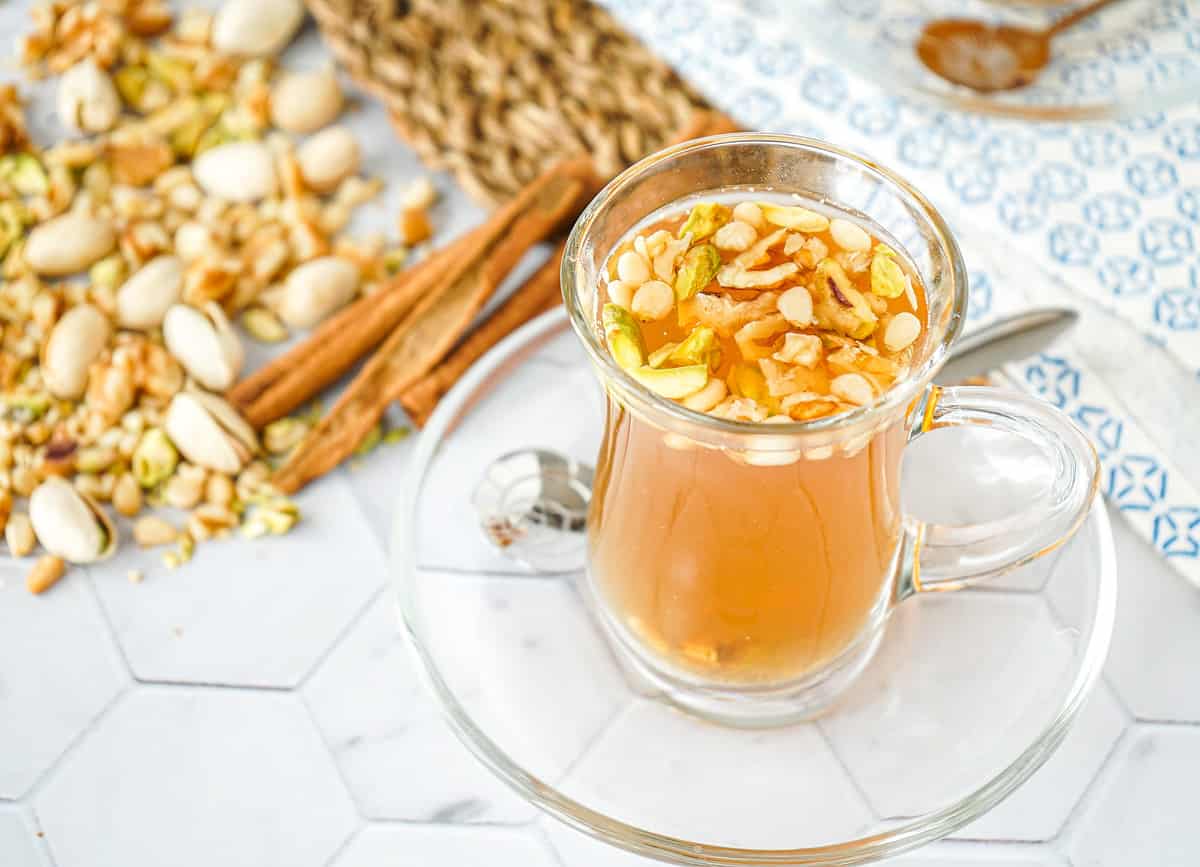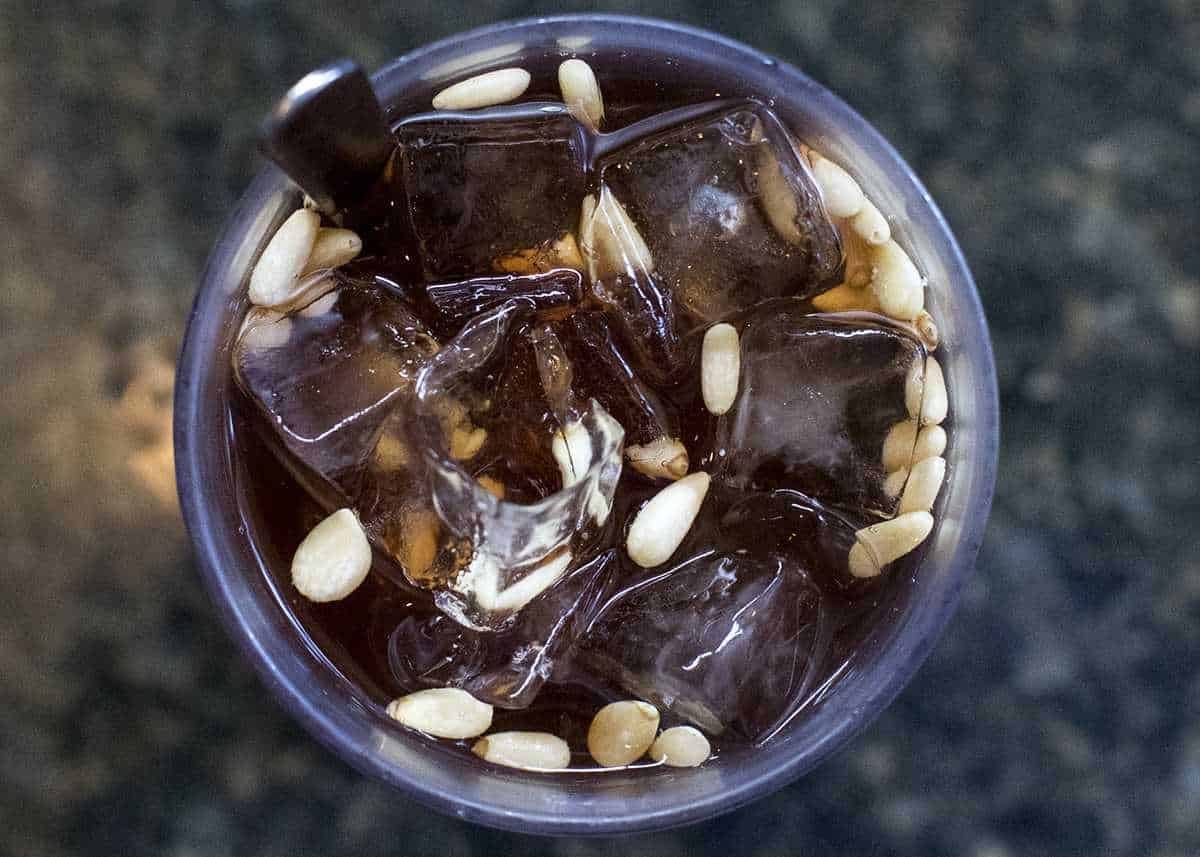In this article, we’ll explore the history of Lebanese tea, the different types of tea commonly found in Lebanon, and how to prepare a delicious cup of Lebanese tea in the comfort of your own home.
Lebanon is known for its rich history, culture, and cuisine. One of the many aspects of Lebanese culture is their tea, which is steeped in tradition and flavor. Lebanese tea is known for its strong aroma, robust flavor, and numerous health benefits.
The History of Lebanese Tea
Tea has been a popular beverage in Lebanon for centuries. Historically, tea was used for medicinal purposes, and was thought to have healing properties that could aid in digestion and soothe various ailments. As tea became more widely available, it became a staple of Lebanese culture.
Today, Lebanese tea is enjoyed by people of all ages, and is often served as a sign of hospitality and friendship.
Types of Lebanese Tea
There are several different types of Lebanese tea, each with its unique flavor and aroma. One of the most popular types of Lebanese tea is black tea, which is often served with a hint of mint and sugar.
Another popular variety is sage tea, which is believed to have anti-inflammatory properties and is often used to relieve sore throats and other respiratory issues.
Rosemary tea is also a favorite in Lebanon, known for its calming properties and refreshing taste. Additionally, there are many herbal teas available in Lebanon, including chamomile, anise, and thyme.
Why Does Lebanese Tea So Popular?
Lebanese tea, also known as “shai,” is a popular beverage in Lebanon and is often served as a welcoming gesture to guests. There are several reasons why Lebanese tea is so popular:
- Cultural Significance: Tea has a long history in Lebanese culture, and it is considered an integral part of daily life. Tea is often shared during social gatherings, and it is seen as a symbol of hospitality and friendship.
- Health Benefits: Lebanese tea is often made with fresh herbs, such as mint, sage, and chamomile, which are known for their health benefits. These herbs are believed to have a calming effect on the body and can aid in digestion and boost the immune system.
- Flavorful and Refreshing: Lebanese tea is typically made with a blend of fresh herbs and is served hot or cold. It has a distinct flavor that is both refreshing and soothing, making it a popular choice for any time of day.
- Ritualistic: The preparation and serving of Lebanese tea is often considered a ritual, with special attention given to the temperature and brewing time. This attention to detail adds to the overall experience and enjoyment of the tea.
- Versatile: Lebanese tea can be served with or without sugar, and it can also be blended with other ingredients, such as lemon or ginger, to create unique flavor profiles. This versatility makes it a popular beverage for all tastes and preferences.
Experimenting with different tea blends and flavors can be a fun way to explore Lebanese culture and traditions.
How to Make Lebanese Tea
To make Lebanese tea, you’ll need loose tea leaves or tea bags, a teapot, and boiling water.
- Begin by boiling the water in a kettle or on the stovetop.
- While the water is boiling, add the tea leaves or tea bags to the teapot. For a stronger flavor, use more tea leaves or tea bags.
- Next, pour the boiling water over the tea leaves or tea bags, and allow the tea to steep for several minutes. The longer the tea steeps, the stronger the flavor will be.
- Finally, pour the tea into a teacup and enjoy. Some people prefer to add sugar or honey to sweeten the tea, while others enjoy it plain.
Where To Buy Lebanese Tea?
Lebanese tea, also known as shai, can be found in various markets and stores around the world, particularly in areas with a large Middle Eastern population. Here are some options for where to buy Lebanese tea:
- Middle Eastern Grocery Stores: Local Middle Eastern grocery stores are likely to carry a variety of Lebanese teas, including traditional blends made with herbs such as mint, sage, and chamomile. These stores may also carry other Lebanese specialty items, such as spices and sweets.
- Online Retailers: There are several online retailers that specialize in Middle Eastern products and carry a variety of Lebanese tea blends. Some popular online retailers include Amazon, The Spice House, and Persian Basket.
- Dama S.A.R.L.: https://www.damatea.com/ – Dama S.A.R.L. is a Lebanese company that produces and sells a variety of high-quality teas, including traditional Lebanese blends made with herbs such as sage, thyme, and rosemary. They offer online shopping and ship worldwide.
- The Spice House: https://www.thespicehouse.com/ – The Spice House is an online retailer that specializes in spices, herbs, and specialty foods from around the world. They offer a selection of Lebanese tea blends made with fresh herbs, including their popular Lebanese Mint Tea.
- Amazon: https://www.amazon.com/ – Amazon carries a wide variety of Lebanese tea blends, including traditional herb blends and flavored varieties. They offer a range of brands and price points, making it easy to find a tea that fits your taste and budget.
- Persian Basket: https://persianbasket.com/ – Persian Basket is an online retailer that specializes in Persian and Middle Eastern foods and products. They offer a selection of Lebanese teas, including traditional herb blends and flavored varieties. They ship worldwide.
- Arz Fine Foods: https://www.arzfinefoods.com/ – Arz Fine Foods is a Toronto-based retailer that specializes in Middle Eastern and Mediterranean foods and products. They offer a variety of Lebanese teas, including traditional herb blends and flavored varieties, and ship within Canada and the United States.
- Lebanese Specialty Stores: Some specialty stores that focus on Lebanese products may also carry Lebanese tea. These stores may be found in larger cities or in areas with a significant Lebanese population.
- Tea Houses: Some tea houses or cafes may carry Lebanese tea blends, particularly those that focus on serving specialty teas from around the world.
- Local Markets and Festivals: In areas with a significant Middle Eastern population, local markets and festivals may offer a chance to purchase Lebanese tea blends and other specialty items.
When purchasing Lebanese tea, it’s important to look for high-quality, authentic blends made with fresh herbs for the best flavor and health benefits.
Conclusion
Lebanese tea is a staple of Lebanese culture, and offers a unique and flavorful taste that is sure to please any tea lover. Whether you prefer black tea, sage tea, rosemary tea, or herbal tea, there is a variety of Lebanese tea that will satisfy your taste buds.
So why not try making Lebanese tea at home and experience the rich culture and flavor for yourself? With a few simple steps, you can create a delicious cup of Lebanese tea that is sure to impress your friends and family.
Originally posted 2023-03-01 21:14:41.

